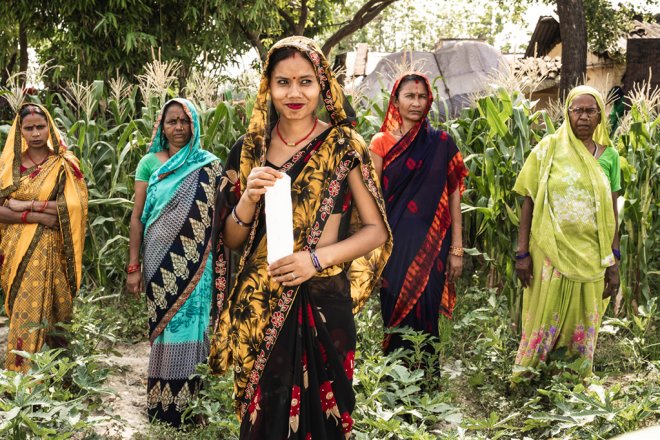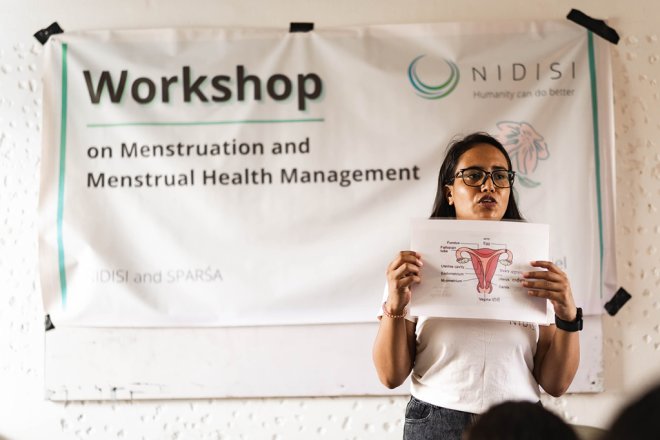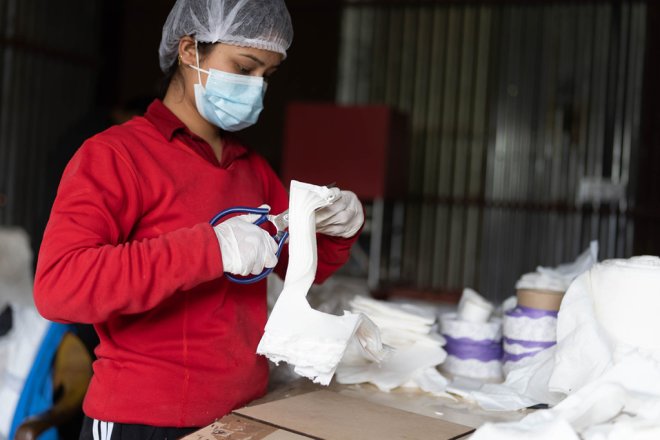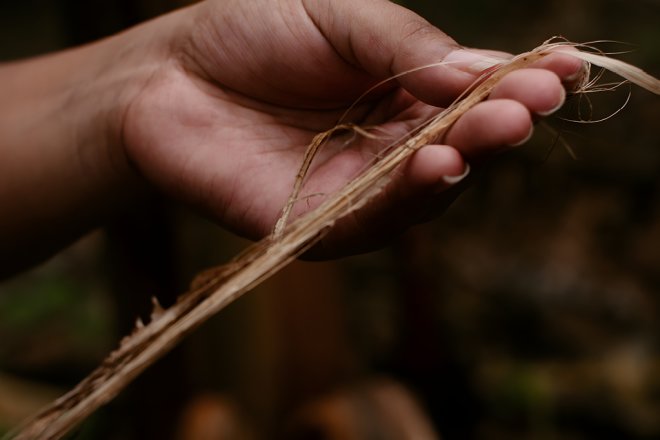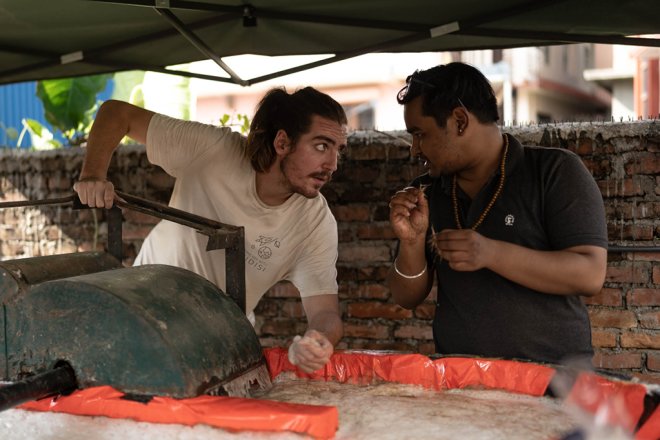Together with you, we are supporting a new project as part of our Rounding Up feature: Your donations will go to the organization NIDISI and will enable the financing of sustainable menstrual products, jobs for women and an education campaign on the topic in Nepal. You can find out why we chose this project and how your donations work here.
With our Rounding Up feature, you can round up to the full euro every time you pay with the Tomorrow card and support projects for more climate justice and those affected by current crises with cents. What is only a small amount of cents for each individual becomes a large sum that can really make a difference. We have already been able to finance eight projects together.
Climate injustice, plastic pollution and equality in Nepal
Nepal is particularly suffering from the effects of the climate crisis, extreme weather conditions and increasing plastic pollution. In addition, inequality and patriarchal norms characterize the country. This also means that women's participation in economic, political and civil life can be limited due to fewer educational and professional opportunities. This exclusion is also reinforced by the social stigma attached to women's menstruation: This is because menstrual blood is considered "unclean" in some regions of Nepal.
The Rounding-Up project with Nidisi in Nepal
The supported project therefore pursues a holistic approach that combines the empowerment of Nepali women and the reduction of menstrual stigma with solutions for the climate challenges.
The first important step is to offer an environmentally friendly alternative to the necessary but environmentally harmful products. To this end, the project produces innovative, compostable menstrual pads from banana fibers, which are actually an agricultural waste product. These menstrual pads are offered cheaply in Nepal. The profits will then be used to fund a menstrual education campaign for schoolchildren and adults.
Destigmatization promotes reproductive health, improves educational opportunities for girls and strengthens women's participation in the labour market. This is important because equal opportunities are essential for sustainable communities. The sustainable sanitary pads not only reduce plastic waste, but also contribute to local environmental protection. The project also creates jobs for women, which makes them more economically independent.
- Image 1
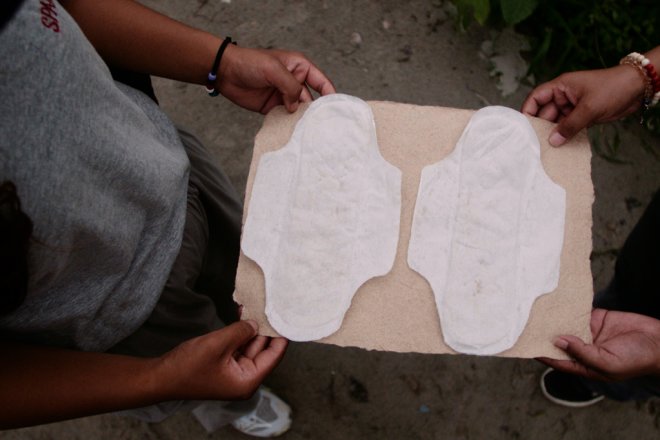
These are the concrete goals that are to be achieved together with the Tomorrow Community:
By the end of 2025, more than 250,000 sustainable sanitary pads are to be delivered, thus avoiding over 700 kg of plastic waste.
An ambassador program will be launched in 2024, which will inform more than 15,000 school children about menstruation and involve over 3,000 adults in community discussions on the topic.
Sustainable jobs will be created for women, giving them more economic independence.
So activate Rounding Up in the Future Tap of your Tomorrow app to make a big difference with your small cents.
About NIDISI GmbH
NIDISI is a non-profit organization that develops innovative and scalable solutions to social and environmental problems in Nepal. It is active in the areas of female empowerment, plastic recycling, clean drinking water supply and education.
Transparency note: We - meaning the Tomorrow Foundation gGmbH and the respective NGO - charge the costs incurred by Tomorrow GmbH through Rounding Up support, for example for transaction fees. As Tomorrow GmbH, we therefore also generate income in order to be able to establish Rounding Up as an independent impact driver in the long term and sustainably. We base the level of costs on the evaluation of the Charity Watch organization. We plan to remain below 25% of the total annual average and are therefore rated top (A) by the NGO.

